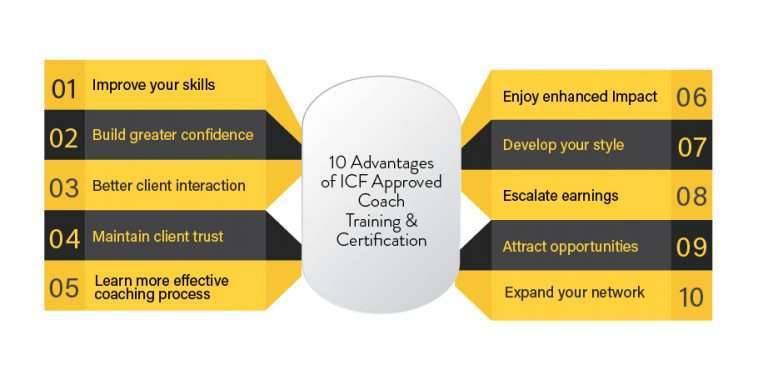Coaching as a profession is still largely unregulated. However, in the last 25 years, International Coaching Federation (ICF) has successfully established itself as the Golden Standard of Coaching.
ICF Coaches are most sought after by Individuals as well as Corporates globally, for their professional credibility, as well as their integrity in Coaching engagements.
In this blog, Priya Sundaram an ICF ACC Coach discusses at length the importance of ICF Code of Ethics, read on to know why Ethics are critical part of Coaching Engagement.
What makes ICF grow & be seen as a consistent & credible brand in the coaching ecosystem includes a
Robust training curriculum standard
Meticulous Credentialing process
Well thought out Code of Ethics.
This blog will specifically throw light on ICF Code of ethics
What is Code of Ethics & its Purpose?
“Ethics is, knowing the difference between what you have a right to do and what is right to do” – Potter Stewart.
The importance of ethics can never be underestimated, be it in personal or professional life. Ethics proves invaluable in representing your organization/brand in good light & thus helps build trust with the clients.
Code of Ethics is a guideline for all internal stakeholders to make day to day decisions & it gets reflected in every action of theirs, in the way they deal with the clients, as well as in all major decisions that takes place in that organization. It also empowers the internal stakeholders by acting as a guiding light in navigating & dealing ethical dilemmas one may encounter at work.
Code of Ethics is also an external statement of an organization’s values & commitments. It helps create a positive image of the organization & sets expectations of professional conduct by encouraging professionals to align their behavior to the larger values of the organization & work in a fair & honest manner. This facilitates creating a loyal & happy customer base.
Any deviation from the Code of ethics must be dealt with severity, as it could forsake the credibility & reputation of the organization.

ICF Code of Ethics
ICF leads the way among other competitive coaching bodies, in creating a reputable name for itself – by embodying professional Coaching standards and establishing ethical standards among all its members.
ICF Code of ethics describes ICF Core Values, ethical principles & ethical standards of behavior for all ICF Professionals. That’s why meeting these ICF ethical standards of behavior is the very first of the ICF Core Competencies (ICF Core Competencies) which says – The Coach, “Demonstrates ethical Practice: Understands & consistently applies coaching ethics & standards”.
Every aspiring Coach has to embody this Value, in order to become an ICF Certified Coach.
A failure to meet these ethical standards (Or any of the Core Competencies) may result in Coach failing to earn their certification or having it revoked.
The ICF Code of Ethics – The 5 main parts
Given the situational & exhaustive nature of the Code of Ethics, it needs to be referred to, studied & adhered to word for word to draw a conclusion to the specific ethical situation at hand.
Duplicating the detailed Code of Ethics is not the intention of this blog, however, if you want to look up the detailed ICF Code of Ethics, click here.
You can download the Code of Ethics in pdf format here. Or take a glance at the nine-part video series here.

ICF Code of Ethics as of the year 2022, contains 5 main parts, we will attempt at outlining what one can expect in those 5 parts.
Section 1: Introduction
This section captures the who (Professionals) & where (Coaching related interactions), the Code of Ethics are applicable.
ICF Professionals abiding Code of Ethics strive to be ethical, even when doing so may involve making difficult decisions or acting courageously.
Section 2: Key Definitions
This section defines all possible references associated with a Professional Coaching Engagement, including – Client, Coaching, Coaching Relationship, Code, Confidentiality, Conflict of Interest, Equality, ICF Professional, ICF Staff, Internal Coach, Sponsor, Support personnel, and Systemic Equality.
Section 3: ICF Core Values & Ethical Principles
ICF Code of ethics is based on the four ICF Core values and the actions that flow from them. The Core Values are:
- Integrity
- Excellence
- Collaboration and
- Respect.
All the above values are equally important and they support one another. ICF Professionals are expected to showcase and propagate these values in all their interactions under all circumstances.
Section 4: Ethical Standards
The ethical conduct outlined by the ICF Code of Ethics is divided into four sections:
- Section 1: Responsibility to Clients
- Section 2: Responsibility to practice and performance
- Section 3: Responsibility to Professionalism
- Section 4: Responsibility to Society.
Section 5: Pledge
The Code of ethics ends with a pledge. Every ICF member and credential holder is to take this pledge agreeing to ICF in its sole discretion may hold them accountable & answerable for any breach of the explicitly outlined ethical standards. This may involve sanctions such as mandatory additional training or the loss of ICF Membership and/or Credentials. The specific case is then subject to a review process by members of the ICF ethical conduct review team.
__________________________________________________
ICF Code of Ethics – Resources & FAQs
Ethics plays a crucial role right from Start to End & everything in between that of a Coaching engagement.
ICF has created an exclusive Ethics Resource page to support & empower ICF Professionals to strive for Ethical Excellence. This page extends support through easy & free access to ICF Ethics Hotline, Liability Insurance for Coaches, Code of Ethics Overview, Code of Ethic FAQs, Complimentary Ethics CCE Course, Ethics Community of Practice, Ethics Water Cooler Conversations, Chapter Leader Ethical Guidelines and Interpretive Statements.
A good part of Ethics comes into Purview right from the Contracting stage with a client &/or a Sponsor and stays throughout the process of coaching till the closure of the Coaching agreement.
It’s best for the Coach to clearly convey the nature & potential value of Coaching, the nature & limits of confidentiality, financial arrangements and any other logistical terms and conditions of the coaching agreement.
It’s imperative for the coach to differentiate Coaching from the spectrum of training, counselling, mentoring, consulting & therapy. This lays the foundation of what to expect and what’s not in the scope of a Coaching contract.
A clear understanding of how the information will be exchanged among all the parties involved during all coaching conversations should also be transparently laid out to avoid ethical conflicts & possible breach of trust & confidentiality.
Defining the success outcomes, the roles & responsibilities of the Coach, Client & the Sponsors involved is also crucial to check progress and eventual measuring of the ROI of the Coaching Engagement. It’s critical to emphasize the client’s responsibility to get results while the coach is there to co-create desired solutions by asking powerful questions, holding a non-judgemental space for the client to reflect on their situations & curiously exploring possibilities.
An ICF Coach should also remain alert to indications that there might be a shift in value received from the coaching relationship & if so, they should proactively make changes in the relationship encouraging the client/sponsor to seek another coach or another professional or use a different resource to get the desired outcome.
Further to some of the above ethical outlines that are crucial in any coaching engagement, here’s a detailed Frequently Asked Questions which captures various probable scenarios & ways to navigate them. This is a must for aspiring coaches to clear their Coach Knowledge Exam & a go-to document for practising coaches to navigate ethical dilemmas.
Code of Ethics Overview and how is the ethical Conduct of a Coach is Measured?
ICF Code of ethics is an integrally embedded part of the ICF Coach training curriculum. All ICF accredited training courses will include live practice, case studies related to ethics and evaluation based on Ethical conduct.
To bring forth the best in each and every professional representing ICF, ICF Members, ICF credentialed Coaches, ICF training providers, and ICF Mentor Coaches – all are committed to:
- Acting and being an ethical individual in all professional interactions with ethical behaviour as the foundation of their Coaching practice.
- Full accountability for the responsibility undertaken as an ICF Member and coach striving for continuous self-awareness, self-monitoring, self-improvement & Continuous learning in the field of coaching as required.
- Uphold the highest standards in a manner that reflects positively on the coaching profession, setting an example both to the profession & to the overall community.
- Be fully present in each and every interaction in which we engage, embracing diversity and inclusion, and value the richness of our global stakeholders.
- Recognizing and abiding by the applicable laws and regulations of each country, municipality and local governing body.
- Provide a safe space for coaches and coaches-in-training, trainers & service providers to learn, excel ethically and strive to become professional coaches of the highest calibre.
Thus, no aspiring coach can claim ICF Credential without pledging to the ICF Code of Ethics. And if the Coach already has an ICF Certification, they will need to renew it every 3 years. This renewal requirement includes 10 hours of mentor coaching – where the Coach’s ability to follow ICF Code of Ethics will be assessed along with other competencies. The Coaches are also to earn a certain number of Continuous Coach Education points, which encourages the coaches to be on a lifelong learning path & continued self-improvement.
What happens if ICF Code of Ethics is breached?
Further to these checkpoints, should a coach fail to follow the ICF Code of Ethics, the client has all the rights to report to the ICF Ethical Conduct review team for further investigation and course of action.
Regal Unlimited ICF Coach Training and ICF Coach Mentoring
Regal Unlimited has been associated with ICF for both Coach Training (ICF – ACC, ICF – PCC) & ICF Coach Mentoring for credential renewals. We stand & support ICF’s initiatives to advance the art, science & practice of Professional Coaching by embodying the highest standards of ICF Competencies and Code of Ethics.
We, at Regal Unlimited, take pride in providing the highest quality coach training to aspiring coaches and handhold them along their ICF journey! We are an ever-growing Coaching & ICF Coach Training institution in India, also catering to global coaches through virtual ICF Coach Training Classes.
To know about the upcoming ICF ACC training Batch details, click here.




